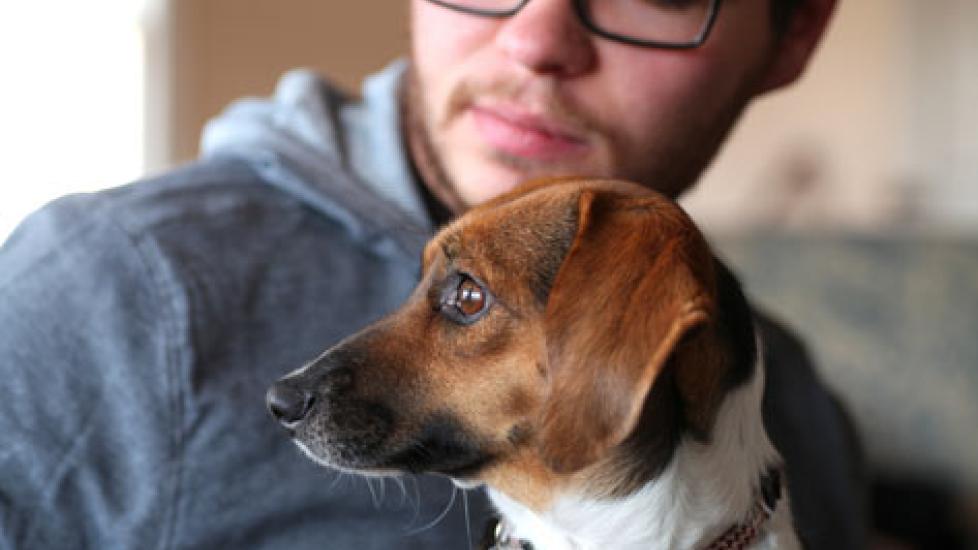Dog Adoption Fees Explained
How Much Does it Cost to Adopt a Dog?
By Jackie Kelly
A common question among dog adopters is, "Why are adoption fees so high? Shouldn’t adopting a dog be free, or at least super cheap?"
But it’s always important to remember: You get what you pay for.
“The great thing about adoption is that the shelters do a lot of the work up front,” says Gail Buchwald, senior vice president at ASPCA Adoption Center. “Everything from vaccinations and medical treatment to behavior assessments and spay and neuter services are already taken care of. We also send animals home with collars, leashes, engraved tags, carriers, and many more of the basics an owner needs to get their dog settled at a new home.”
Fees are often adjusted based on the age of the dog, but here is a breakdown of what a good shelter has already put into your dog before you adopt.
Spay, Neuter, and Other Medical Services
“In a private practice setting, dog spays and neuters can range from $200 to $800,” says Dr. Kate Gollon, shelter and community veterinarian for the Animal Rescue League of Boston. That price varies depending on the size of the dog, sex, age, and geographic location, but Gollon says it can often be more than the total cost—between $200 and $450—of all adoption fees, which makes adopting a noticeably less expensive option.
Gollon says all dogs (as well as cats and rabbits) are spayed or neutered before they’re adopted. Among the other medical services covered by the overall cost of adoption, Gollon says, are a full veterinary exam, vaccines (including ones that cover distemper, parvo, rabies and kennel cough, assuming the dog is old enough), heartworm test, intestinal dewormer, and flea and tick treatment.
Some dogs, but not all, may also receive blood work, X-rays, and/or dental work, depending on their condition when they arrive at the shelter.
Microchips
Not all shelters microchip dogs before they’re adopted, but good ones do. Although a lot of pet owners insist that their adopted dog will never get lost, shelters see it happen all the time—whether it be because of a natural disaster or an unfortunate accident.
Buchwald says it will cost you approximately $40 plus an exam visit fee if you microchip through a veterinary clinic. If you adopt from a shelter that makes microchipping mandatory, it’s built into the adoption cost and ultimately sets the shelter back about $20.
Food, Shelter, and Comfort
The cost to feed a dog for a month in an animal shelter can vary greatly based on the resources of the shelter, but a general ballpark estimate is approximately $40 to $60. This does not include special diets for dogs who need weight loss food or dog food for other specific health needs. Then there are toys, treats, bedding, and other necessities that the shelter provides.
Extras
Buchwald says you will need to pay two fees before adopting—an adoption fee and a dog license fee. Both vary depending on the dog in question, the facility from which you’re adopting, and the location of the shelter , but she says the adoption fee is generally between $75 and $200, while the dog license fee is roughly $10.
She adds that the ASPCA and other similar organizations occasionally have special days on which some or all of these fees are waived.
Some animal shelters will provide you with a bag of food to go home with so you can slowly adjust your new dog to the brand you’ve chosen to feed him. Collars, ID tags, and leashes may also be worked into the adoption fees. If you’ve adopted a puppy or a dog who was transferred from one region or shelter to another, the cost for the transportation might be added into your dog adoption fee.
Carolyn Curran, shelter manager for the Animal Rescue League of Boston, says her shelter (and others) provide some of these extras in exchange for a suggested donation.
“For instance, we recommend crating a new dog in your home, but we don’t require that,” she says, “so we can give adopters a crate, if they’d like, for a suggested donation.”
Remember that most of these nonprofit organizations do not receive federal or state funding. The dog adoption fees make caring for the animals in the shelter possible. More often than not, the regular day-to-day operations, the cost for animal shelter agents, veterinary staff, etc., gets paid for by the shelter’s ability to fundraise and acquire donations to keep themselves afloat rather than just through adoption fees for animals. Additionally, most adoption centers will explain what their adoption fees include.
Post-Adoption Costs
Finally, there are the things you need to account for once you have your dog home. While they’re not exactly fees associated with the actual adoption process, they’re still costs you need to account for when you’re bringing home a new dog.
Curran says all new dogs should have a wellness visit with a vet within the first few weeks of the adoption. “The animals who come in here and are adopted are all seen by a vet, but it’s important for new owners to establish a relationship with their own vet early,” she says. “If your puppy has a funny rash three months after adoption, you’ll want to know that you have somewhere to go.”
You may also need to seek out the services of a trainer or behaviorist, if your dog is having a hard time adjusting. Curran says her shelter’s dogs are monitored closely for things like resource guarding, and while they note any problematic behavior with a prospective adopter early in the process, some dogs’ behavior might not change until after they go home with a new owner.
Additional reporting by John Gilpatrick
